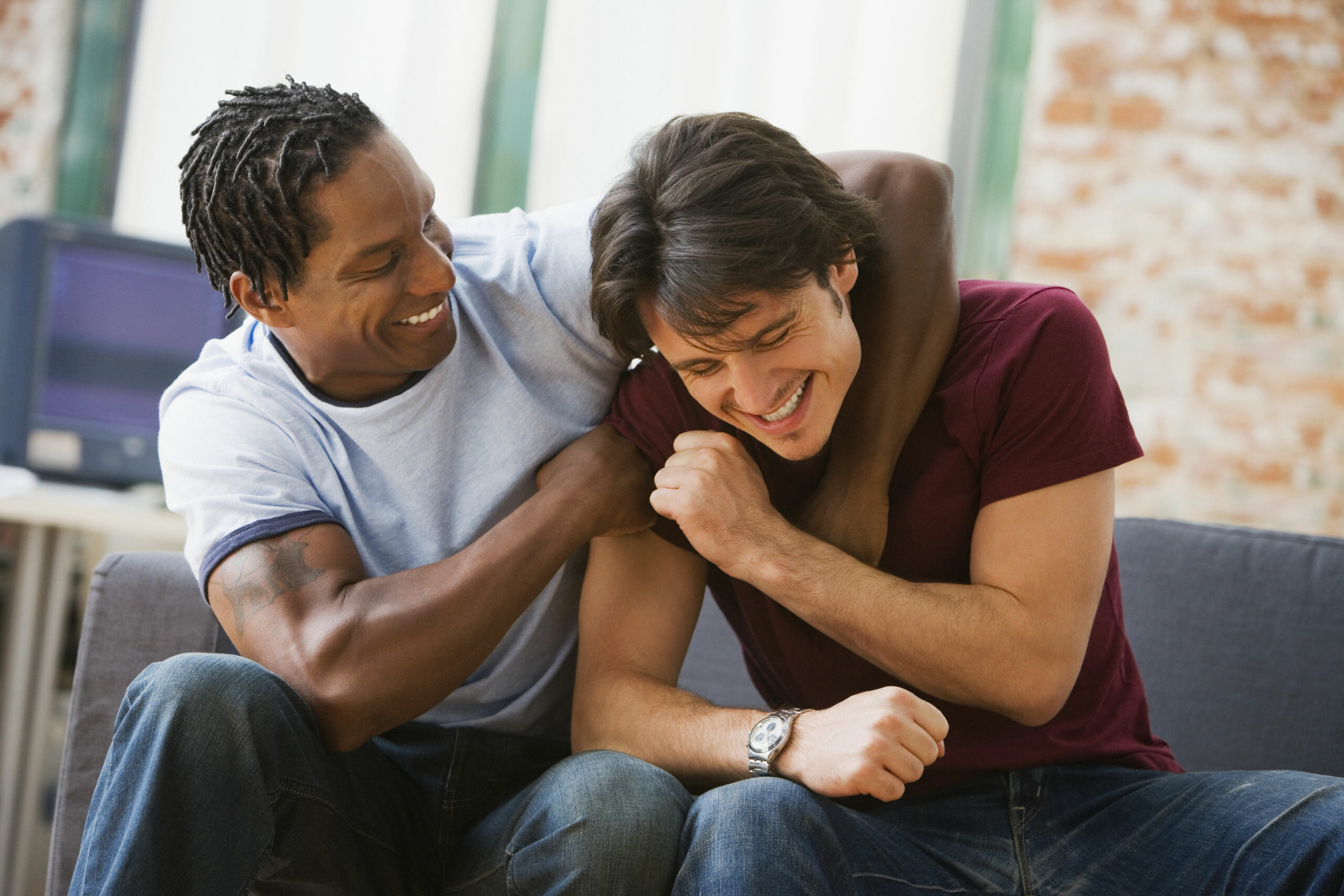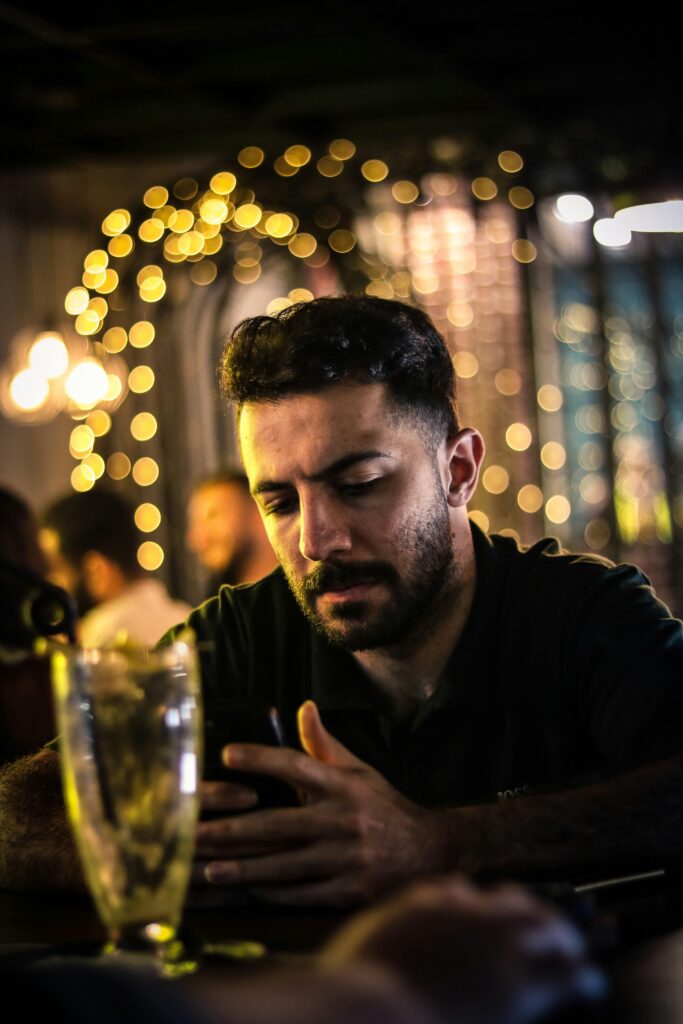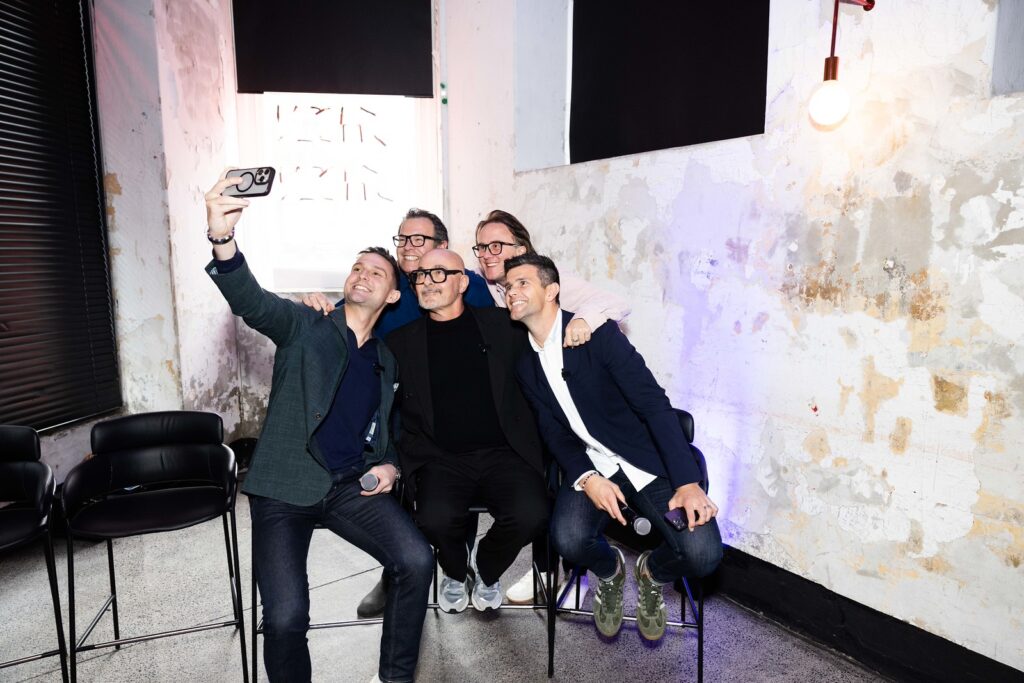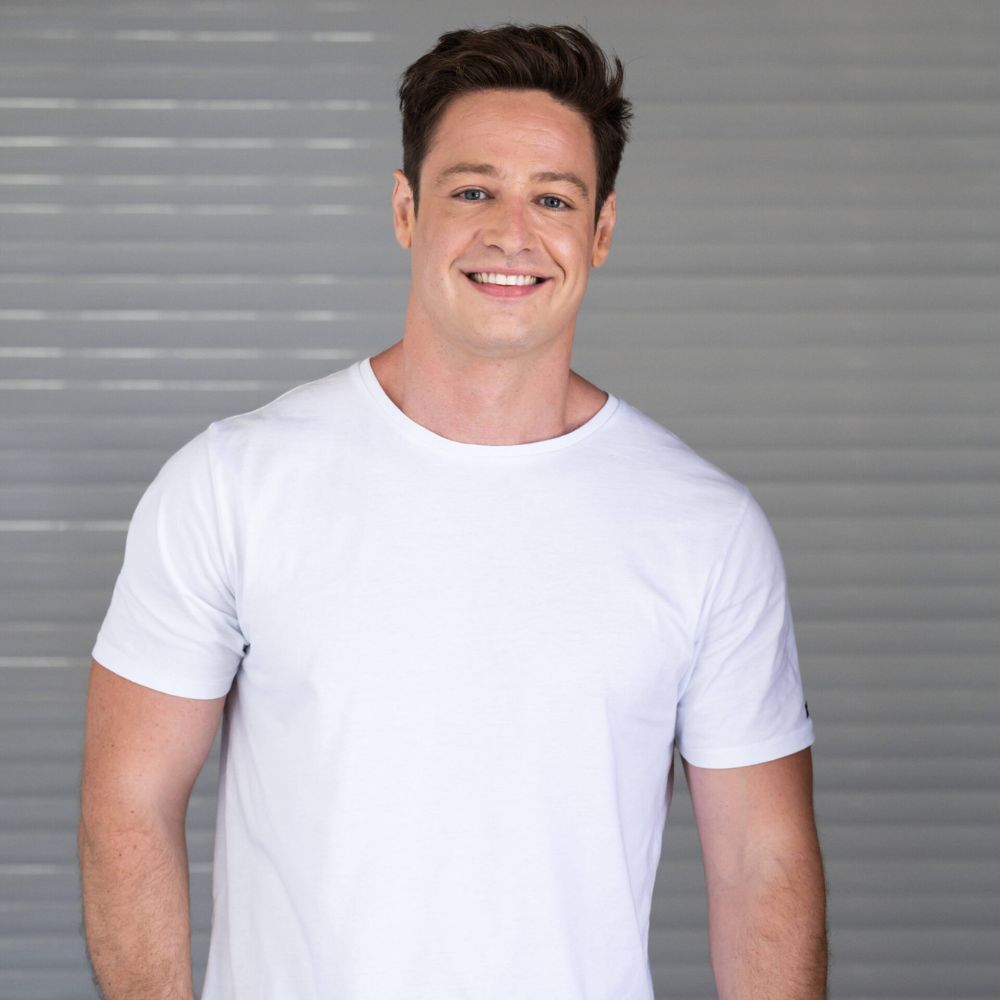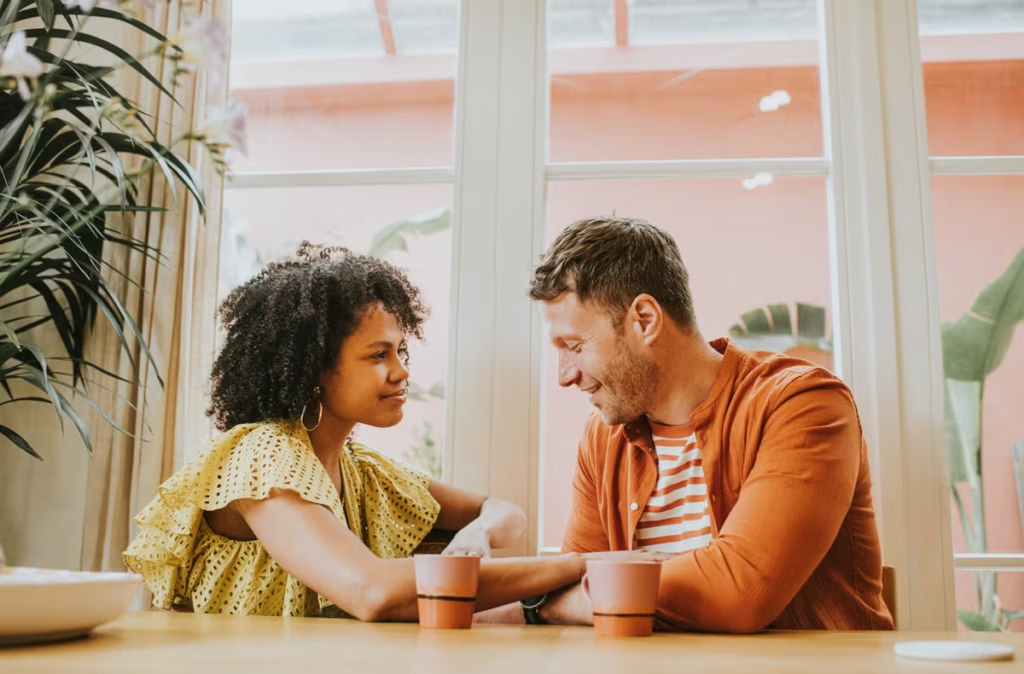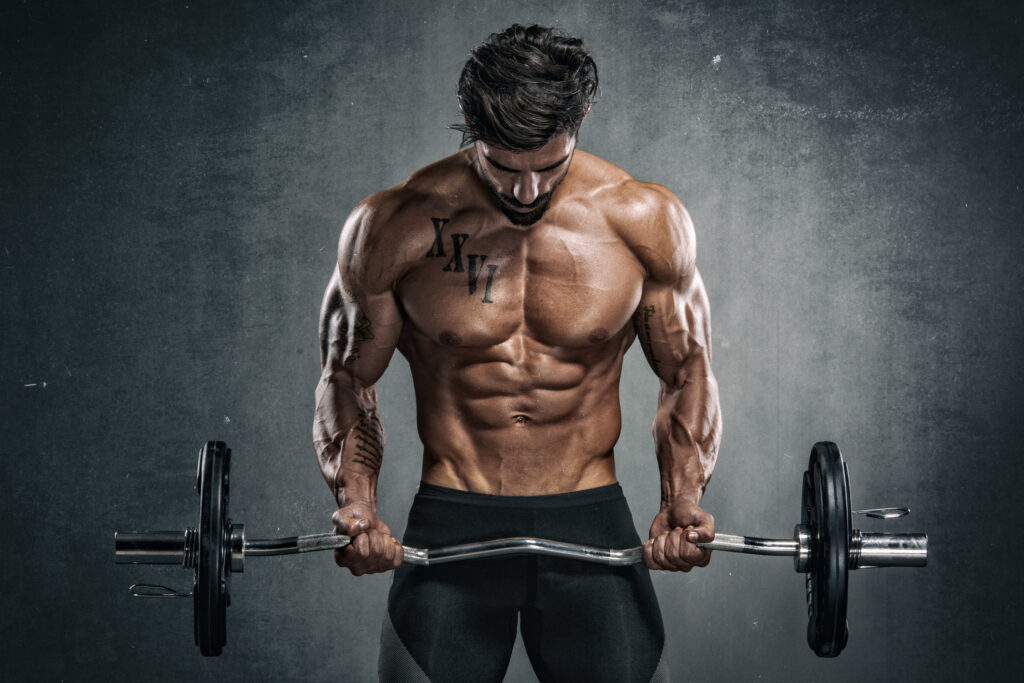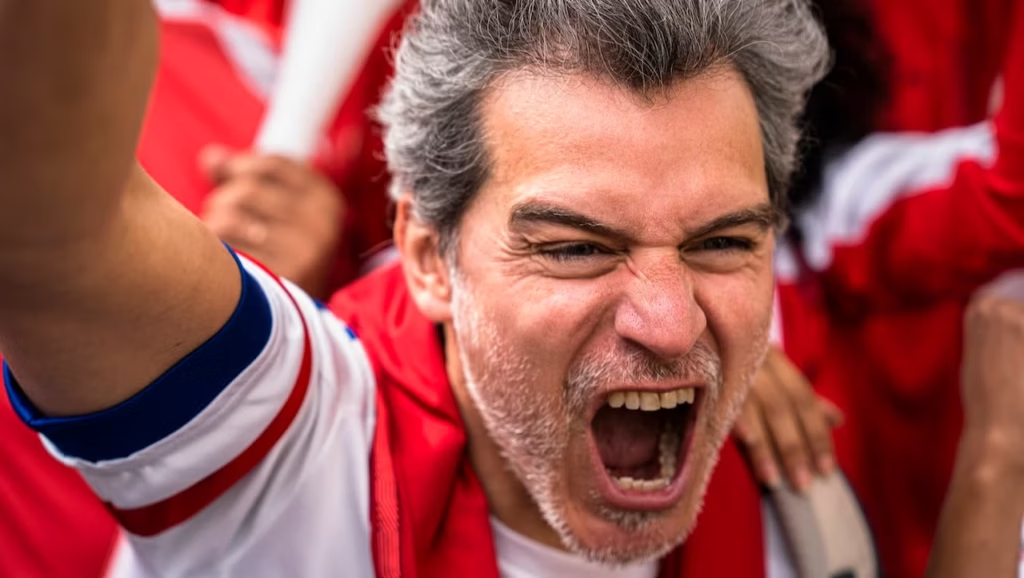I FELT SO great walking into the local cafe the other day. Like many big feelings it wasn’t just one thing that contributed to it. It was a delightful combination of the warm sunshine as I rode my cargo bike there, the wind in my face with the extra e-bike oomph, the doom metal in the earbuds (yes, I find doom metal joyous), the anticipation of a great chat and the expectation of a second coffee that had me walking through the door without my feet touching the ground.
As I scan the room and see my friend and I step around the full table by the door, and that delightful feeling is completely shattered as out of nowhere someone at the table next to me punches me in the shoulder hard enough to rattle my teeth and knock me off my balance.
I swerve around to face whoever hit me, my adrenaline firing as I’m wondering what’s about to kick off and I see a smiling face that my brain recognises but I struggle to immediately place.
It’s a man I haven’t seen in maybe five years. I think it was someone’s birthday lunch, and he was their older friend. Tall fella, mid 60s, long reach, an older-model Australian man – let’s call him Clancy*. (*That’s not his real name or his real description. I don’t want to out him) We had sat next to each other at lunch and connected over motorbikes. It was a good chat, however, I haven’t thought of this person, said this person’s name, or spoken about this person to my friend that I met him through since that day five years ago.
It took me a little bit to get my head together, until my mouth caught up with my brain and I explained that it was good to see him, I’m here for a meeting, I won’t be long and after I’ll come and chat.
Walking towards my friend, I had to take a moment to recalibrate because I was rattled by what just happened. I’m not a person that gets into fights. Ever. There was one time that I punched a bully in the tuck shop line when I was 14, but that’s another story.
I was rattled by this. Clancy is a big kind of bloke, a surf club-life-member type who looks after himself. And now I have my back to him and it’s hard to focus on chatting with my friend because I’m wondering if this bloke is going to come and put me in a friendly headlock and give me a noogie as a way to say goodbye before he heads off.
To centre myself, I try to understand where he’s coming from. As an older guy, when he was younger that’s probably how Clancy was told how men connected, how blokes of his cohort showed each other that they cared.
Wrapping up my meeting I went and chatted with this guy for a few minutes, then took the lead with a one-handed goodbye handshake.
Riding home I investigated why I got so rattled by the whole exchange. Turns out it was a physical flashback to the school I went to, where a hard punch on the arm was a way of saying hello. If you were joining a group of people then it was a dead arm as a welcome because everyone gets in on it.
There are a number of other such greetings.
I used to work with a bloke who was from the country and his signal of affection was a nut slap. He’d misdirect and signal an incoming handshake and as you came together his other hand would just flick you in the nuts. Hard enough to make you drop to your knees struggling to breathe. That was hello.
We’ve all met a guy who does the crushing handshake, like he’s the henchman in a Bond film. Is he assuming I’m keeping some walnuts in my palm and he’s helping me crack them? Does he work on commission with an orthopaedic surgeon? Does he think I’m hiding a piece of coal in my hand and together we’ll make a diamond?
If it’s not a physically dominant greeting, it’s verbal.
“Hey! Osher ya fat fuck!”.
“Yeah, nice to see you too, Gav”.
It might be a controversial take, but here goes.
I don’t like being greeted in any of these ways, and I don’t think it makes me any less of a man because of it. I would like to think that we don’t need to call someone horrible names, or punch them in the arm, or slap them in the nuts, to say hello, or show that we care about them.
When I point out that I don’t like it in the moment, I’ve been told it’s playful and harmless. No, it isn’t. It’s a shitty way of asserting physical dominance over somebody.
Punches, nut-slaps and insults are like shields we weakly cower behind, dominating the other person so we don’t have to be emotionally vulnerable when engaging with them.
It takes self-worth, confidence and presence to look someone in the eye and connect with them as you shake their hand.
Because in that cafe, what does the old guy want to do? He just wants to reconnect with the guy he had a great chat about motorbikes with but he might not know how to do that in a way that doesn’t involve a slug to the shoulder. It’s not his fault, perhaps he doesn’t know there’s another way to say hello.
Talking about this moment to an acquaintance, she commented that “this kind of toxic masculinity needs to be called out”.
I do take issue with that word. A punch in the arm is not great behaviour and labelling it ‘toxic’ just ends the conversation. In an effort to help men and especially boys, figure out what’s okay and absolutely normal, I believe that referring to aspects of masculinity as “healthy” and “unhealthy” offers not only a pathway to change but a way for others to model behaviour for them.
I appreciate it’s “toxic” is word that describes many aspects of workplace culture and overall behaviour that detracts from our society yet that label is limiting when it comes to offering solutions or alternatives for young men and boys to find their way towards, as they figure out how to fully express their masculine self in a healthy way.
When it’s expressed in a healthy way, masculinity is as important to our community as femininity. It’s vital that we model healthy masculinity for the young men and boys around us, and it’s on all of us to make sure that unhealthy expressions of masculinity have less and less impact on our workplaces, our friendships and our families.
Masculinity has played a huge role in my life. My career couldn’t possibly be what it is, nor would I have the relationships that I have without the drive, vision, confidence and whatever other things that are often labelled, but aren’t exclusively, masculine traits. I most certainly do have those things, yet my masculinity doesn’t express itself like a slap in the dick to say hello.
I don’t believe that makes me any less of a man.
Related:
Osher Günsberg: how I found freedom from fear of death
Osher Günsberg on the hard road to a healthy ego




